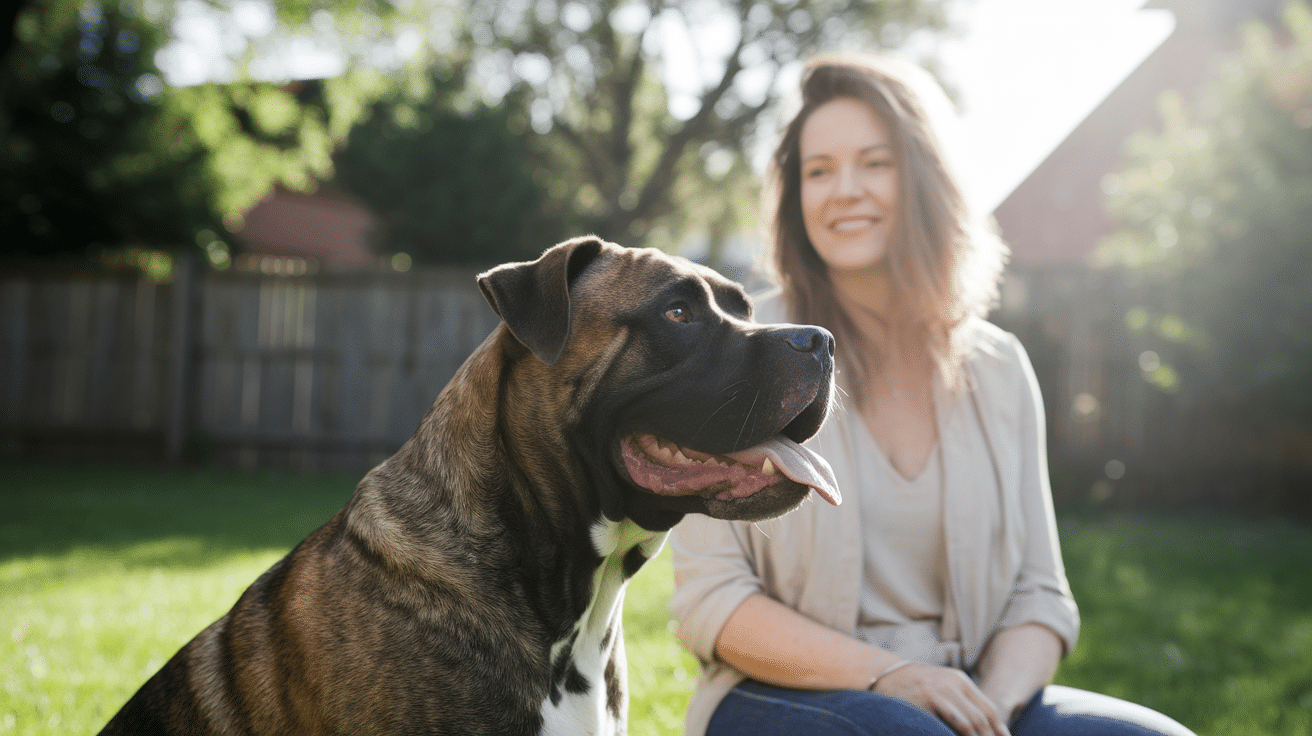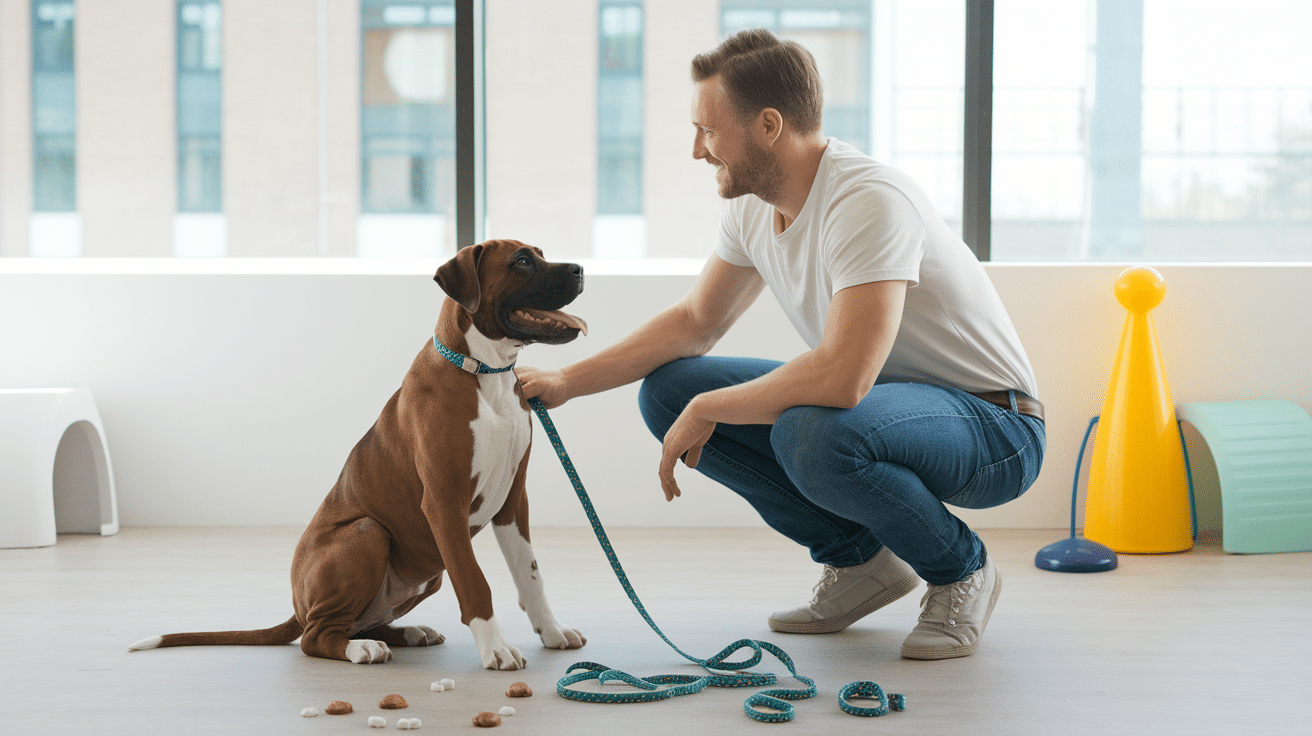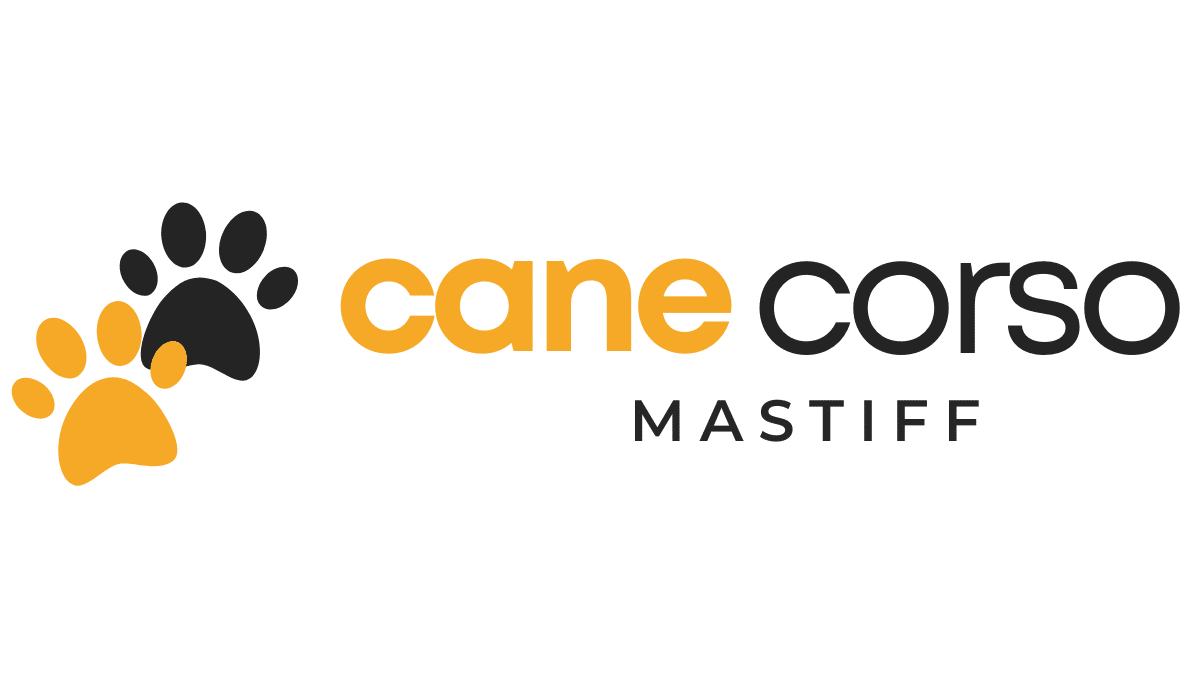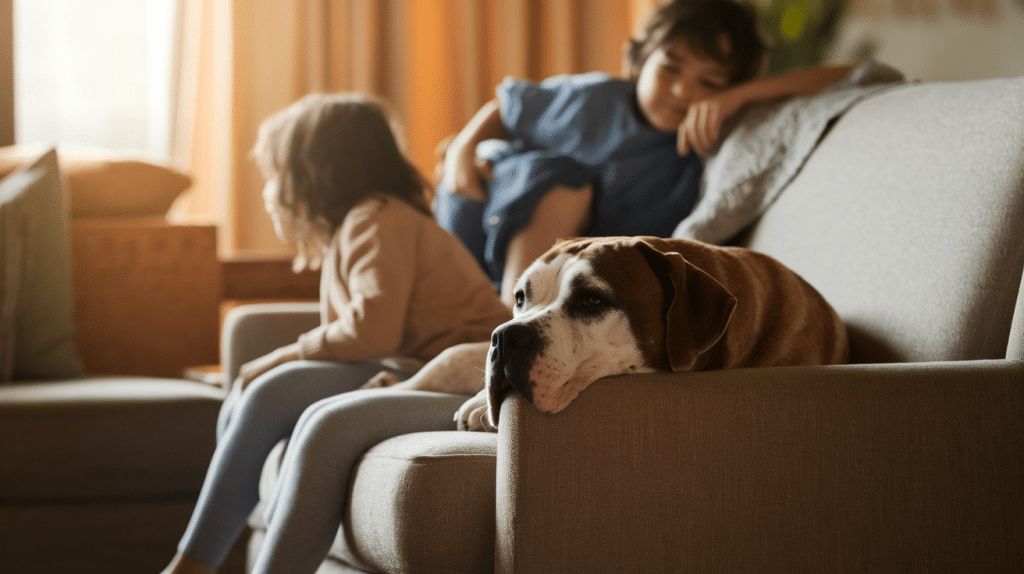Thinking About Adopting a Cane Corso? Here’s What You Should Know Before Bringing Home This Big Softie
Have you ever looked into the eyes of a Cane Corso and felt like they saw straight through you—with love, loyalty, and maybe a little judgment for not sharing your sandwich? Yeah, me too.
If you’re in your 30s or 40s, maybe juggling a career, a partner, a couple of kids, or even just trying to keep your houseplants alive, the idea of adopting a Cane Corso might feel like jumping into the deep end. But if you’re the right fit, bringing home this majestic Italian Mastiff could be one of the most rewarding decisions of your life.
Let’s break down the real-deal Cane Corso adoption advice—minus the fluff, plus some heartfelt honesty.
A Gentle Giant With a Job to Do
The Cane Corso (pronounced KAH-neh KOR-so) is big, muscular, and carries themselves with the calm confidence of someone who knows they could bench press your entire friend group—but would rather nap next to you on the couch.
They were originally bred in Italy as working dogs—guarding farms, driving livestock, and being all-around badasses. But under that tough exterior is a deeply loyal companion who thrives on connection and structure.
If you’re looking for a dog who doubles as a shadow and a personal bodyguard, the Cane Corso fits the bill. But here’s the thing: they’re not for the faint of heart—or the unprepared.

Temperament: Devoted, Discerning, and Sometimes… Stubborn
Cane Corsos are incredibly affectionate with their families. Once they bond with you, you’ll have a four-legged protector for life. They’re not the type to beg for cuddles all day (although don’t be surprised if they lean their 100-pound frame into your lap during movie night), but they’ll be wherever you are—bathroom breaks included.
They’re naturally wary of strangers, which is part of what makes them such excellent watchdogs. But this protective instinct also means early socialization is a must. Think puppy kindergarten, meet-ups with friendly dogs, walks around the neighborhood. The more positive experiences they have early on, the better.
I remember when my friend Sarah adopted her Cane Corso, Luna. At first, Luna wouldn’t let the mailman within ten feet of their porch. But after some slow introductions and plenty of treats, Luna now wags her tail when she sees him—although she still eyeballs the packages like they might be hiding squirrels.
Training: Not Optional, Non-Negotiable
If there’s one piece of Cane Corso adoption advice I’d tattoo on my forehead (okay, maybe just on a sticky note), it’s this: training starts on day one. These dogs are smart—like, scary smart. But they’re also independent, which means they’ll test your boundaries if you don’t set them early.
Positive reinforcement, consistency, and confidence are key. They respond best to calm, assertive leadership—think “gentle boss,” not “drill sergeant.”
Also? Don’t skip obedience classes. Even if you’ve raised dogs before, the Cane Corso is a different ballgame. Having professional support, especially during those puppy months, is like having a co-pilot while flying a very large, furry plane.

Training: Not Optional, Non-Negotiable
If there’s one piece of Cane Corso adoption advice I’d tattoo on my forehead (okay, maybe just on a sticky note), it’s this: training starts on day one. These dogs are smart—like, scary smart. But they’re also independent, which means they’ll test your boundaries if you don’t set them early.
Positive reinforcement, consistency, and confidence are key. They respond best to calm, assertive leadership—think “gentle boss,” not “drill sergeant.”
Also? Don’t skip obedience classes. Even if you’ve raised dogs before, the Cane Corso is a different ballgame. Having professional support, especially during those puppy months, is like having a co-pilot while flying a very large, furry plane.
Lifestyle Fit: Is a Cane Corso Right for You?
Let’s be honest: this isn’t a good match if your idea of exercise is walking from the couch to the fridge. Cane Corsos need daily physical activity and mental stimulation. They’re not wild like Border Collies, but they do get bored—and bored Corsos can be destructive (ask Sarah about the time Luna chewed through her yoga mat and her favorite sneakers).
Ideally, they need:
-
A yard to stretch out in (apartments = tricky)
-
Long walks or hikes
-
Puzzle toys and training games
-
Purpose—be it guarding, obedience, or even canine sports
They also need your time. Cane Corsos don’t do well left alone for long hours every day. If you work from home or have a flexible schedule, you’re already ahead of the game.
And yes, they drool. Not Saint Bernard levels, but enough that keeping a towel by the water bowl isn’t a bad idea.
They’re Not “Just a Dog”—They’re a Commitment
Adopting a Cane Corso means welcoming a creature who will likely live 9 to 12 years—years filled with loyalty, big slobbery kisses, occasional headstrong moments, and the quiet comfort of a dog who knows your routines better than you do.
They’ll guard your home, your kids, your leftover pizza—whether it needs guarding or not. And they’ll do it with heart.
But the responsibility is real. Vet bills for large breeds are no joke. Feeding them isn’t cheap (and no, you can’t cut corners with food quality—they’re prone to hip issues and bloat). And you’ll spend time brushing, cleaning ears, trimming nails, and yes—cleaning drool off the ceiling once or twice.
So, Should You Adopt One?
If you’ve done your research, have the time, patience, space, and budget—and you’re craving a loyal, intelligent, fiercely loving companion—a Cane Corso might just be your soulmate in a fur coat.
But if you’re not quite there yet, that’s okay too. The best Cane Corso adoption advice I can give is this: be honest with yourself. Not every great dog is the right dog for every person. And that’s not failure—that’s responsible ownership.
Final Thoughts: Choose Love, Choose Wisely
Adopting a Cane Corso isn’t just adding a pet to your life—it’s inviting a guardian, a goofball, and a gentle giant into your heart. They’ll test you, love you, protect you, and probably steal your side of the bed.
But more than anything, they’ll need you to show up. To lead. To love them through their bigness, their boldness, and their deeply sensitive souls.
And if you do? You’ll never regret it.
Because behind those massive paws and watchful eyes is a dog who wants nothing more than to be yours.
People Also Ask
What are the key traits and characteristics of Cane Corsos that potential adopters should know?
Cane Corsos are the kind of dog that make you feel like you’ve got a furry bodyguard and a best friend rolled into one. They're large, powerful, and incredibly intelligent—but what really stands out is their loyalty. When a Cane Corso bonds with you, they’re yours. Not in a clingy way, but in a “watching over you like a quiet protector” kind of way.
They’re naturally reserved with strangers but affectionate and even goofy with their people. They’re not hyper, but they do need meaningful mental and physical engagement. If you’re someone who values structure, connection, and the feeling of being followed into every room, a Cane Corso might be your perfect match.
What are some common health issues associated with Cane Corsos, and how can they be managed?
Like many large breeds, Cane Corsos are prone to hip dysplasia, elbow issues, and bloat (gastric torsion). They may also develop heart conditions such as cardiomyopathy and eye problems like entropion.
The good news? A lot of this can be managed—or even prevented—with responsible care. That means choosing a reputable breeder if you’re not adopting from a rescue, feeding a high-quality diet, keeping them at a healthy weight, and scheduling regular vet checkups. Many Corsos also benefit from joint supplements as they age.
And just a tip from someone who’s been there: get pet insurance early. With big dogs, even minor issues can lead to big vet bills.
How does the temperament of a Cane Corso influence its suitability for families with children or other pets?
This is where it really depends on you—your lifestyle, your boundaries, and how much time you're willing to invest. A well-trained and properly socialized Cane Corso can be wonderful with children. They’re protective, patient, and surprisingly gentle when raised around kids.
That said, they’re still a powerful breed with a guardian instinct. Supervision is key, especially with younger children who might not understand dog boundaries. As for other pets, early socialization is non-negotiable. Some Corsos are great with other dogs and even cats—others, not so much. It really comes down to training, temperament, and introductions done the right way.
What specific training needs do Cane Corsos have, and how can new owners prepare for this?
Training a Cane Corso is a bit like raising a teenager who’s smarter than you think—and who might question your authority just to see what happens. They’re clever, but independent. They don’t respond well to harsh corrections, but they thrive under firm, fair, and consistent leadership.
Start training early, preferably the day they come home. Puppy classes are a great first step, and they give you structure too. Use positive reinforcement—praise, treats, and calm confidence. Also, teach them to be okay being alone for short periods early on; Corsos can become quite attached and develop separation anxiety if not properly conditioned.
Pro tip? Train for the real world, not just “sit” and “stay.” Think: how do they behave when someone comes to the door? On a leash? At the vet? That’s where the real training pays off.
What are the essential considerations for adopting a Cane Corso, including space, exercise, and socialization needs?
This is a big dog with big needs. You don’t need a castle, but a Cane Corso does best in a home with a yard and access to open space. Apartment living can work with the right commitment—but you’ll be doing a lot of early morning walks.
They need daily exercise—walks, training games, even scent work or agility if you’re up for it. Mental stimulation is just as important as physical. A bored Corso might chew your furniture or redecorate your backyard with a digging project.
Socialization is huge. Don’t assume their protective nature will automatically “turn off” around friends or visitors. You have to expose them—gently and regularly—to different people, environments, and situations. It builds confidence and curbs reactivity.
How can potential adopters assess whether they can meet the needs of a Cane Corso before bringing one home?
It really comes down to lifestyle and self-awareness. Ask yourself:
-
Do I have the time every day for walks, play, training, and grooming?
-
Can I afford quality food, vet care, and possible emergencies?
-
Am I confident enough to lead a strong, willful dog?
-
Can I provide consistency and structure every day—not just when it’s convenient?
If your answers feel shaky, that’s okay. It doesn’t mean you’re not a great dog person. It just means this breed may not be the right fit right now. And that’s actually a loving, responsible decision.
What are the best practices for introducing a Cane Corso to a new home environment?
Keep it calm, slow, and structured. Don’t throw a welcome party or introduce them to everyone at once. Start with a quiet tour of the home and yard. Let them sniff around at their own pace.
Stick to a routine right away—same feeding times, same walk times, same sleeping area. They find comfort in predictability.
If you have other pets, do introductions carefully and gradually. Use leashes, neutral territory if possible, and give everyone time to adjust.
Most importantly, be patient. The first few days are all about decompression. Let them settle, learn your scent, your voice, your rules. In a week or two, you’ll start to see their personality unfold.
How does adopting a Cane Corso contribute to the broader conversation about responsible pet ownership and breed-specific concerns?
Choosing to adopt—or responsibly purchase—a Cane Corso sends a strong message: that you’re committed to understanding a breed before bringing it into your life. Corsos often end up in shelters not because they’re bad dogs, but because someone didn’t realize what they were signing up for.
By being informed, by training and socializing your dog properly, you help change the narrative around this breed. You show the world that Cane Corsos aren’t “dangerous” or “aggressive”—they’re loyal, intelligent, and deeply loving when raised right.
Responsible ownership means advocating for the breed through your actions. It means setting a powerful example that big dogs with big hearts deserve humans who go all-in on love, effort, and understanding.

